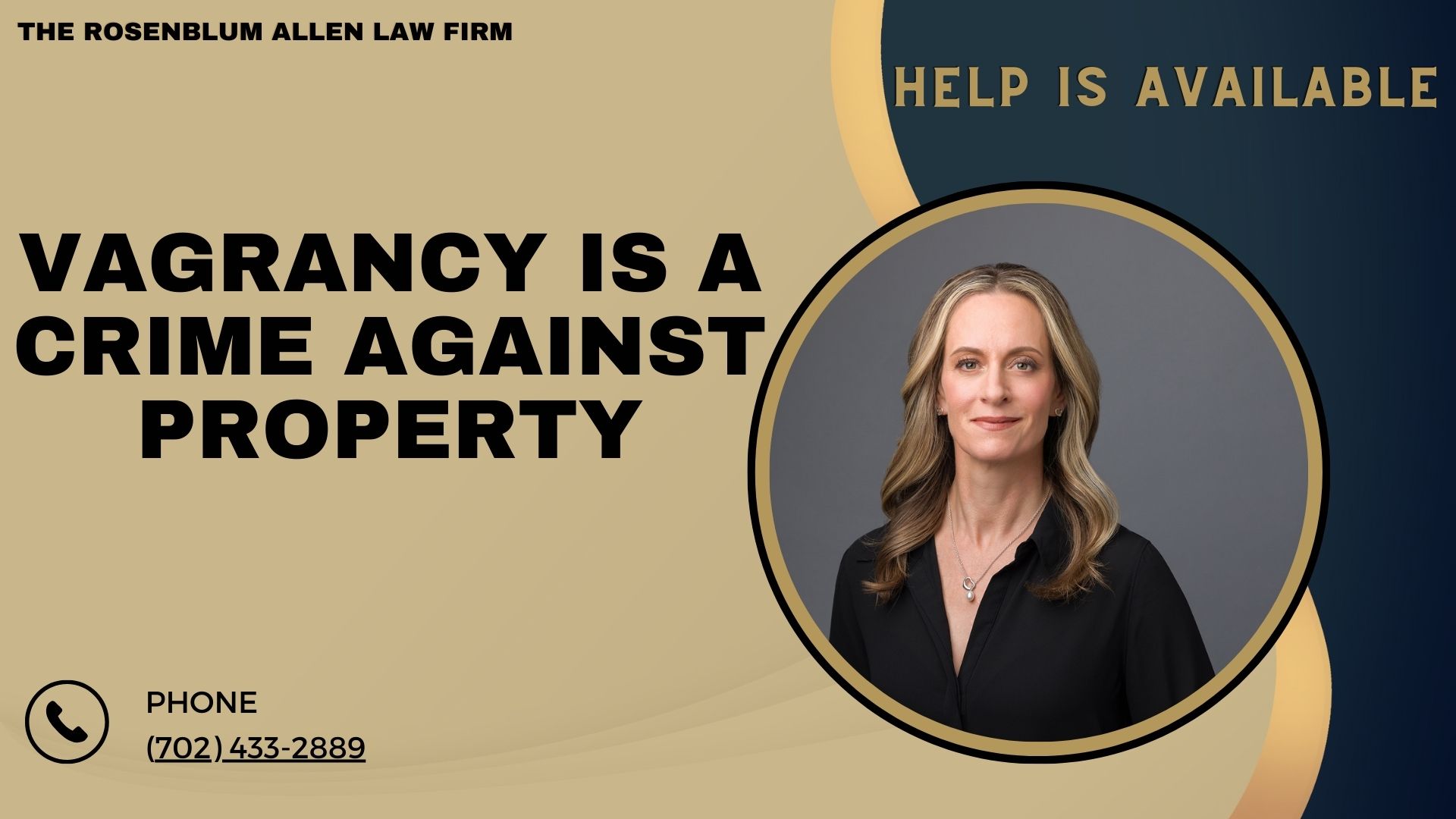The idea is that “vagrancy is a crime against property”. It asks us to rethink vagrancy and property. Lawmakers designed vagrancy laws to penalize homeless or unemployed people. But, these laws have evolved, as has the interpretation of what is a property crime.
 Definition of Vagrancy
Definition of Vagrancy
Vagrancy, broadly, means living without a regular home or job. It often involves wandering. Throughout history, society and the law viewed it as a sign of idleness with implications.
Historical Context of Vagrancy Laws
Vagrancy laws have a long and varied history. They originated in England during the 14th century. They mainly aimed to control the poor. They sought to stop disorder and protect property.
Overview of the Argument That Vagrancy is a Crime Against Property
This analysis argues that vagrancy acts against property. It does so not just by trespass or damage. It does this by challenging the norms. These norms link property to productivity, order, and stability.

The Legal Framework of Vagrancy
Vagrancy laws have changed over centuries. They reflect changes in society and attitudes toward poverty, homelessness, and public order.
Evolution of Vagrancy Laws
From Medieval to Modern Times
Vagrancy laws were first written in the 14th century in England. They were supposed to address the labor shortages after the plague. The laws evolved. They changed a lot in the 19th and 20th centuries. These changes reflected the social upheavals from industry and cities.
Significant Legal Cases Shaping Vagrancy Laws
Papachristou v. City of Jacksonville (1972): This landmark U.S. Supreme Court case invalidated a Florida vagrancy law, deeming it too vague and infringing on fundamental freedoms.
Other notable cases across various jurisdictions have similarly questioned the fairness and constitutionality of vagrancy laws.
Current Vagrancy Laws Across Different Jurisdictions
Vagrancy laws vary widely, reflecting national and local priorities and legal traditions.
United States: Many states have revised or repealed traditional vagrancy laws, though some forms of these laws still exist, focusing on specific acts like loitering.
European Countries: Vagrancy laws have primarily been repealed or replaced by social welfare provisions, although some countries maintain laws against begging or homelessness.
Other Parts of the World: The approach to vagrancy varies greatly, with some countries maintaining strict laws and others adopting more supportive measures.
The Intersection of Vagrancy and Property Rights
The law sees vagrancy as a crime against property. This is because vagrancy disrupts the order that property rights uphold. This view suggests that vagrancy can harm property values, businesses, and public safety.
Legal Rationale Behind Vagrancy as a Crime Against Property: Central to this is the belief that property rights are not just about owning or using property but also about contributing to the broader societal and economic stability.
Examples of Vagrancy Impacting Property and Property Owners: Instances include trespassing, loitering, and the perceived impact on neighborhood safety and property values.
Through this first look, we’ve started to unravel the tangled web. It links vagrancy, law, society, and property. As we proceed, we’ll dive deeper into the societal and economic forces at play. We’ll cover the ethical debates about these laws. We’ll talk about modern alternatives to addressing vagrancy. We’ll do it without making it a crime.

Social and Economic Perspectives
Looking at vagrancy through social and economic factors shows a complex picture. It’s not just about individuals. It’s about the broader society that leads to such situations.
The Role of Socioeconomic Factors in Vagrancy
Vagrancy doesn’t occur in a vacuum. It’s often the visible tip of deeper societal issues.
Poverty and Homelessness: These are perhaps the most direct causes of vagrancy. Economic downturns, lack of affordable housing, and insufficient social safety nets contribute significantly.
Unemployment: Losing a job can be a fast track to losing one’s home and, eventually, to vagrancy. The cycle of unemployment and homelessness can be challenging to break.
Mental Health and Substance Abuse: Often overlooked, these factors play a significant role. Without adequate support and treatment, individuals suffering from mental health issues or substance abuse may find themselves on the streets.
Impact of Vagrancy on Communities and Businesses
Vagrancy harms a community. It ripples through the local economy and social fabric.
Safety Concerns: Perceptions of safety can decline, affecting residents’ quality of life and their willingness to frequent local businesses.
Property Values: There’s often a perceived correlation between vagrancy and lower property values, although this can vary significantly based on numerous factors.
Public Perception and Community Relations: Vagrancy can strain the relationship between different community groups, sometimes leading to a lack of empathy or understanding.

Ethical and Human Rights Considerations
The discussion around vagrancy laws touches on deeper ethical and human rights questions. Is it right to criminalize someone for their socioeconomic status?
The Debate on Criminalizing Vagrancy
The ethics of vagrancy laws are hotly debated, with arguments on both sides.
Arguments For: Proponents argue that these laws are necessary for maintaining public order and protecting property rights.
Arguments Against: Critics highlight the criminalization of poverty and the infringement on human rights, advocating for more compassionate approaches.
Alternatives to Criminalization
Around the world, people have explored many strategies to address vagrancy. They aim to avoid using criminal penalties.
Supportive Housing Initiatives: Providing stable housing as a first step towards reintegration into society.
Employment and Rehabilitation Programs: Helping individuals gain the skills and support needed to find employment and address underlying issues such as substance abuse.
Community-Based Solutions: Engaging local communities in creating supportive environments and opportunities for those experiencing vagrancy.

Case Studies
Examining real-world examples provides insight into the challenges and successes of addressing vagrancy.
Successful Approaches to Addressing Vagrancy Without Criminalizing It
City-Level Initiatives: Cities like Helsinki have made significant strides with housing-first approaches, dramatically reducing homelessness.
National Policies: Countries like Canada have implemented comprehensive strategies, including employment, housing, and healthcare support.
Non-Profit and Community Efforts: Grassroots organizations often provide direct support and advocacy for people experiencing homelessness and those at risk of vagrancy.
Challenges and Lessons Learned
Enforcement and Compliance Issues: Even well-intentioned programs face challenges in implementation and ensuring participation.
Balancing Property Rights with Human Rights: Finding a compromise that respects both property rights and individual rights is a continuous challenge.
Navigating vagrancy is complex. It’s clear that there are no easy answers. Yet, progress is possible through comprehensive analysis, compassion, and innovative thinking. This exploration is a starting point. It will lead to deeper discussions and actions for fairer solutions.

Breaking It All Down
We are finishing our detailed look at the issue “vagrancy is a crime against property.” It reminds us of the topic’s complexity. Our journey covers legal, social, economic, and ethical landscapes. It gives a foundation for understanding but also raises more questions.
Summary of Key Points
Vagrancy laws have evolved significantly from medieval to modern interpretations, influenced by changing societal values and legal precedents.
Socio-economic factors are pivotal in vagrancy, with poverty, unemployment, and mental health being key contributors.
Communities and businesses feel the impact of vagrancy, experiencing challenges related to safety, property values, and public perception.
Ethical and human rights considerations present a critical viewpoint, questioning the morality of criminalizing vagrancy and highlighting the need for compassionate alternatives.
Successful case studies from around the globe demonstrate that other options for criminalization, such as supportive housing and comprehensive social programs, can offer practical solutions.
Future Directions for Vagrancy Laws and Policies
We must keep looking forward. The talk is about vagrancy, property rights, and societal duty. It must keep evolving. Potential paths include:
Legal Reforms: Advocating for changes in vagrancy laws that reflect modern understandings of homelessness and poverty, moving away from punitive measures towards more supportive interventions.
Social Interventions: Enhancing and expanding social services to address the root causes of vagrancy, including affordable housing, mental health services, and employment programs.
Community Engagement: Encouraging greater community involvement in developing compassionate responses to vagrancy, fostering environments of support and understanding.
Final Thoughts on Vagrancy as a Crime Against Property
In conclusion, vagrancy affects property rights. But, it is also tied to broader issues of social justice, human dignity, and community welfare. Seeing vagrancy as a symptom of larger problems helps us approach it with empathy. We can seek solutions that uplift individuals and communities. The path forward requires a balanced approach. It must respect property rights while also honoring the value and rights of every person.
We are moving towards a future that aims to fix these issues. Understanding, compassion, and innovative policy will be vital. They will help us create more inclusive and supportive societies. The talk about vagrancy and property rights isn’t over. But, we can make positive change with more talk and action.

Frequently Asked Questions
What are the main reasons vagrancy is considered a crime?
Vagrancy is seen as a threat to public order and community standards, particularly in terms of property safety and economic value. Laws against vagrancy serve to maintain social order by punishing disruptive behaviors that may jeopardize these standards.
How do contemporary vagrancy laws differ from historical ones?
Modern vagrancy laws are more targeted and specific, focusing on behaviors such as loitering, public intoxication, or begging rather than simply addressing the state of being homeless or unemployed. Additionally, many jurisdictions have shifted towards addressing the root causes of homelessness and unemployment rather than solely relying on punitive measures.
Are there alternatives to punitive measures for addressing vagrancy-related issues?
Yes, many communities have successfully implemented alternatives that prioritize support and rehabilitation over punishment. These alternatives include providing access to affordable housing, healthcare, job training, and social services to address the underlying causes of homelessness and unemployment.
Can the enforcement of vagrancy laws infringe on individual rights?
Critics argue that the enforcement of vagrancy laws can indeed violate individual rights, including freedom of movement and privacy, particularly when these laws disproportionately target marginalized groups. There are concerns that such laws may effectively criminalize poverty or homelessness.
How do cultural perceptions influence the enforcement of vagrancy laws?
Cultural perceptions significantly impact how vagrancy laws are enforced and perceived by the public. Negative stereotypes about homelessness and poverty often lead to stricter enforcement, while more compassionate views may advocate for reform and support-based approaches.
What role do economic factors play in the prevalence of vagrancy?
Economic factors, such as unemployment and the availability of affordable housing and social services, play a significant role in driving vagrancy rates. Economic downturns, for example, often lead to increased homelessness and unemployment, contributing to higher rates of vagrancy.
How can communities support individuals at risk of vagrancy?
Communities can support individuals at risk of vagrancy by implementing inclusive policies and programs that provide access to housing, healthcare, education, and employment opportunities. Local resources and organizations play a crucial role in offering direct support and intervention strategies.
What impact does the criminalization of vagrancy have on society?
Criminalizing vagrancy can perpetuate poverty and homelessness, strain the criminal justice system, stigmatize individuals, and lead to tensions within communities. Moreover, it undermines efforts to address the root causes of vagrancy through supportive measures.
Are there successful international models for addressing vagrancy without resorting to criminalization?
Several countries and cities have successfully implemented models that prioritize housing, social support, and decriminalization, resulting in significant reductions in vagrancy rates and improvements in the well-being of affected individuals.
What future developments can be expected in the legal and social handling of vagrancy?
Anticipated future developments may include further legal reforms aimed at decriminalizing homelessness and poverty, increased investment in social services and affordable housing, and a greater emphasis on preventive measures. Additionally, there is a growing movement towards holistic approaches that address the social, economic, and health factors underlying vagrancy.

Additional Resources for You
In addition to guiding you through the complexities of divorce law, our lead attorney, Molly Rosenblum Allen, Esq., has created an array of resources to assist you in times of need across various legal challenges. Whether you’re facing criminal charges, dealing with a DUI, or navigating the intricacies of domestic violence accusations, we’re here to support you. Here’s a brief overview of the resources available to you:
Criminal Defense: Our team provides robust defense strategies for those accused of criminal activities. Learn more about Criminal Defense.
DUI Charges: Facing DUI charges in Las Vegas? Our effective DUI lawyer can help. Explore DUI Defense Options.
Domestic Violence: Legal support for domestic violence charges, ensuring your rights are protected. Find Out More.
Drug Possession: Charged with drug possession? We offer experienced legal counsel. Get Help with Drug Charges.
Sex Crimes: Navigating sex crime charges requires skilled legal defense. Sex Crimes Attorney Services.
CPS Defense: Facing child abuse or neglect accusations? Our CPS defense attorney is here for you. CPS Defense Information.
Misdemeanors: For those charged with misdemeanors, we offer comprehensive legal support. Misdemeanor Legal Assistance.
Warrant Defense: Our Las Vegas warrant defense attorney can help clear your name. Warrant Defense Help.
Probation Violations: Legal representation for probation violation matters. Probation Violation Support.
Theft Crimes: Defense strategies for those accused of theft. Theft Crime Defense.
Kidnapping: Specialized legal support for kidnapping charges. Kidnapping Defense Details.
Juvenile Defense: Protecting the rights of juveniles facing legal issues. Juvenile Defense Services.
Firearms Charges: Legal guidance for firearms-related charges in Las Vegas. Firearms Lawyer Assistance.
Molly Rosenblum Allen, Esq. and the entire team at The Rosenblum Allen Law Firm are dedicated to providing the legal support you need, regardless of the situation. Each of these resources was crafted with your legal challenges and concerns in mind, aiming to offer clarity and support when you need it most.

Outside Resources for You
American Bar Association: A comprehensive source for finding legal resources, including guides on family law and divorce. Visit the American Bar Association.
National Coalition for the Homeless: Offers information and resources for those facing homelessness, an issue closely tied to discussions around vagrancy. Explore the National Coalition for the Homeless.
Substance Abuse and Mental Health Services Administration (SAMHSA): Provides resources for individuals struggling with substance abuse and mental health issues, which can be factors in cases of vagrancy. Check out SAMHSA.
National Domestic Violence Hotline: A vital resource for individuals facing domestic violence situations, offering support and guidance. Reach out to the National Domestic Violence Hotline.
The Innocence Project: Works to free the staggering number of innocent people who remain incarcerated, and to bring reform to the system responsible for their unjust imprisonment. Learn more about The Innocence Project.
FindLaw: A leading provider of business law solutions and a valuable resource for legal information on a variety of topics including property law and criminal defense. Visit FindLaw.
National Association of Criminal Defense Lawyers (NACDL): An organization that aims to ensure justice and due process for persons accused of crime or other misconduct. Explore NACDL.

A Special Message from Our Lead Attorney, Molly Rosenblum Allen, Esq

Dear Reader,
Thank you for taking the time to engage with our resources. I hope you’ve found the information insightful. It has been empowering. This is true no matter your legal challenges. At The Rosenblum Allen Law Firm, we know that navigating the legal landscape can be scary. But, you don’t have to do it alone.
We and our team are dedicated to providing you with personalized and effective legal assistance. You deserve it. We specialize in family law and criminal defense. We’re here to help you with those matters and others.
If you feel ready to discuss your situation and explore your options, please call us at (702) 433-2889. Let’s get the ball rolling towards a solution that works for you.
Warm regards,
Molly Rosenblum Allen, Esq.




